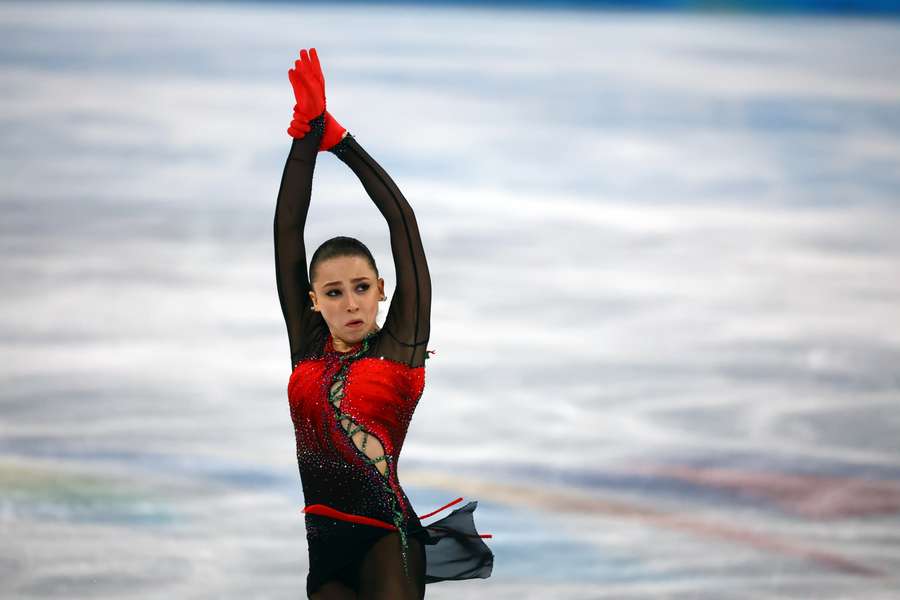Canada may appeal after Russia get Olympic bronze despite Valieva ban

The teenager received a four-year doping ban on Monday, effective from December 2021, stripping the ROC of its gold medal in the team event nearly two years after the competition.
It was thought that Canada, who finished fourth in the event, would be promoted to bronze.
But the ISU said the Russian Olympic Committee's (ROC) total score even after Valieva's marks were erased was still a point better than the Canadians.
"Skate Canada is extremely disappointed with the International Skating Union's position on the long-awaited awarding of medals," the national federation said in a statement.
Skate Canada argued that the ISU was not applying Rule 353, which states that "competitors having finished the competition and who initially placed lower than the disqualified competitor will move up accordingly in their placement".
"Skate Canada strongly disagrees with the ISU's position on this matter and will consider all options to appeal this decision," the national federation added.
The Canadian Olympic Committee said it was working with Skate Canada on exploring a potential appeal.
"We recognize how difficult this process is for all the athletes and give our support to the Canadian skaters who made us so proud," it said in a statement.
"This is a reminder of how harmful doping is and how crucial it is that we have a fair and safe sport system at home and around the world."
In its long-awaited ruling, the Court of Arbitration for Sport (CAS) found Valieva guilty of committing an anti-doping rule violation that rocked the Beijing Olympics when news of it first emerged and frustrated competitors who have been left waiting for their medals ever since.
The ISU published an amended final points table on Tuesday that has the United States bumped up to gold with 65 points, Japan winning silver with 63 and Russia taking bronze with 54.
Canada - represented by Roman Sadovsky, Madeline Schizas, Kristen Moore-Towers, Michael Marinaro, Vanessa James, Eric Radford, Piper Gilles and Paul Poirier - scored 53.
"The ISU is in close contact with the International Olympic Committee and the relevant ISU member federations in regard to the implementation of this decision," figure skating's governing body said.
The ROC said it would appeal the decision to strip Russia of gold.
The CAS panel determined there had been no scope for Valieva, who was 15 at the time of the offence, to be treated with more leniency than an adult found to have committed an anti-doping rule violation.
The International Olympic Committee said it was now in a position to award the medals based on the ISU's ranking.
"We have great sympathy with the athletes who have had to wait for two years to get the final results of their competition," the IOC said in a statement.
"The IOC will contact the respective (national organizing committees) in order to organise a dignified Olympic medal ceremony."
Valieva tested positive for the banned substance trimetazidine, which prevents angina, at the Russian national championships in December 2021. The result was made known only after she competed in the team event in Beijing.
Her team has said the positive test could have been due to a mix-up with her grandfather's heart medication.
